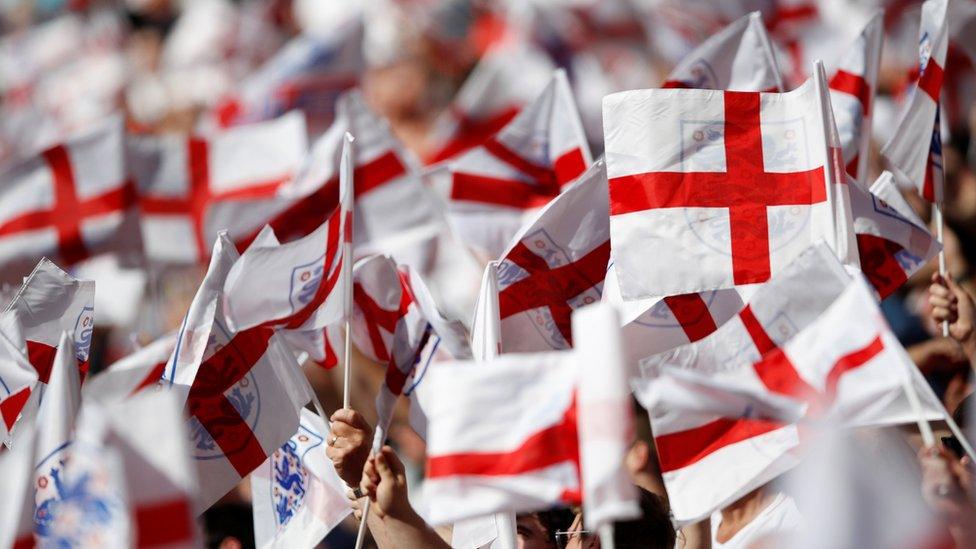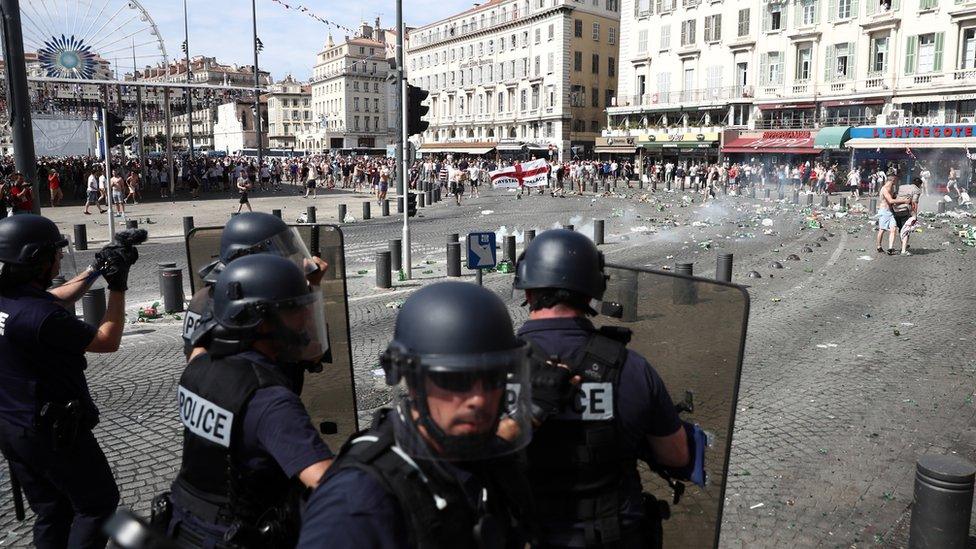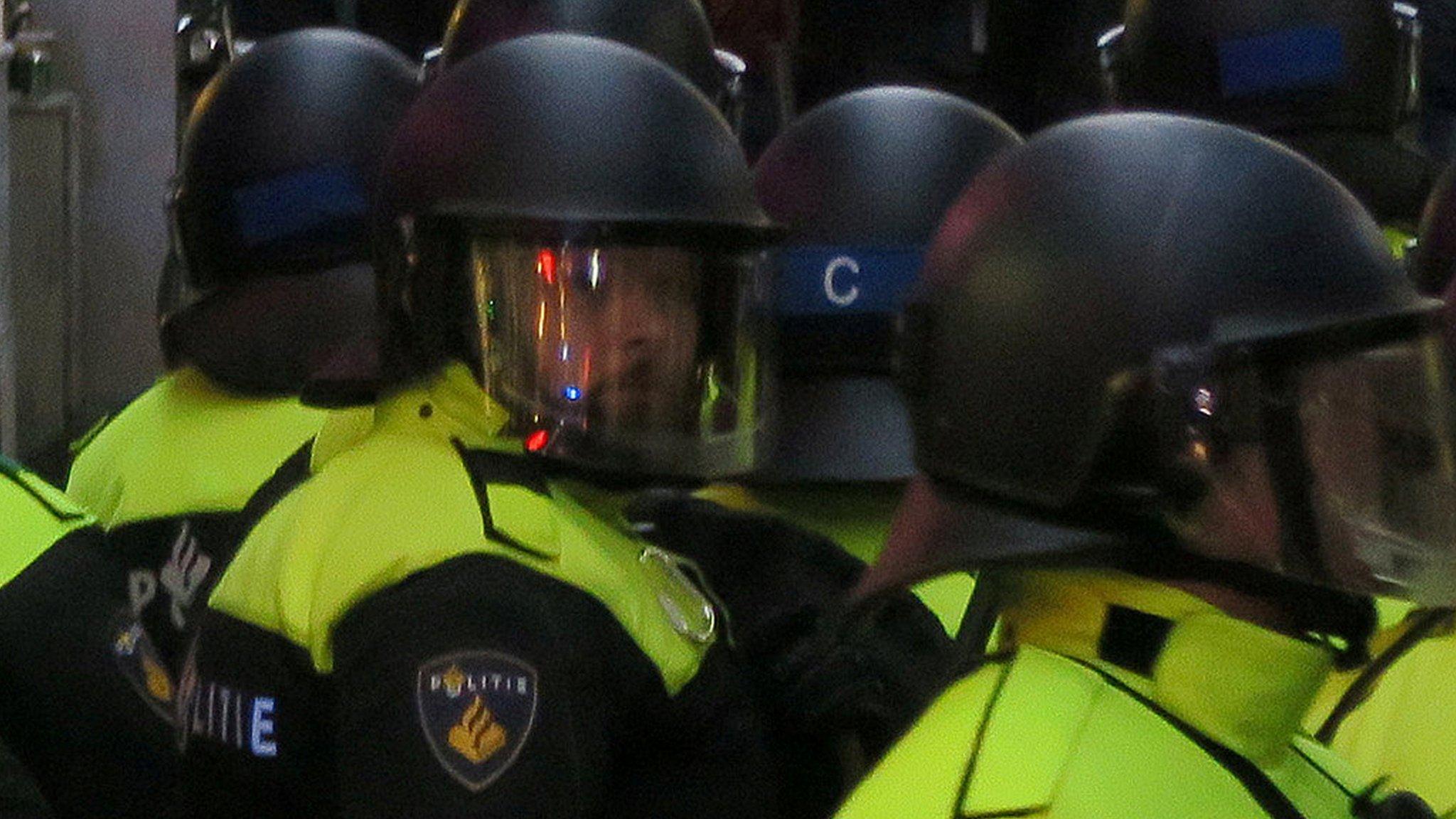World Cup 2018: England 'thugs' stopped from going to Russia
- Published

More than 1,200 people banned from attending football matches have surrendered their passports ahead of the World Cup, the Home Office says.
Of 1,312 individuals with football banning orders, 1,254 have given up their documents before the tournament in Russia, which starts on 14 June.
Police say they will continue working to trace the remaining 58.
Police minister Nick Hurd said the action would ensure "thugs" would not "ruin the tournament for real fans".
About 10,000 people from the UK are expected to travel to Russia for the World Cup.

You may also be interested in:

Fans making the trip have been advised by the Foreign Office to read the latest travel advice before departing., external
Supporters are being encouraged to be "good guests", read up on the host cities and carry £200 in roubles at all times to cover emergency expenses.
In March, English police had to reassure Russian authorities only "genuine fans" would make the journey, after more than 100 supporters were arrested when England played the Netherlands in Amsterdam.
There were also violent clashes between Russia and England supporters when the two countries played each other in Marseille at Euro 2016.
As well as the banning orders, police will be deployed at major UK ports during the World Cup to stop known troublemakers from travelling to Russia.
A delegation from the UK will travel to the country to work with their police counterparts during the tournament.
Football banning orders are imposed by courts and can last for up to 10 years.
There are currently 327 banned individuals who do not hold passports and they are not required to report to police.
Two years ago 1,406 people were ordered to surrender their passports prior to Euro 2016 in France, while 1,456 were asked to give them up before the 2014 World Cup in Brazil.
Deputy Chief Constable Mark Roberts, the national lead for football policing, said: "A comprehensive policing operation has been in place across the country to account for passports of those on banning orders, which has once again seen only a handful of those outstanding."
- Published9 May 2018

- Attribution
- Published24 March 2018
